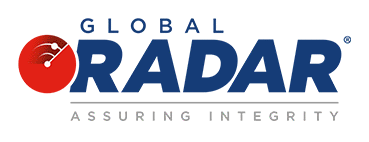Since the early origins of major domestic and international corporations, the goal has remained steadfast in maximizing efficiency and subsequent profits, with these priorities far outweighing the social responsibilities that have gained significant importance in today’s society. As a result, large corporations have long been thought of as “greedy” organizations that will make any and all moves necessary to secure their bottom-line and their ultimate longevity. Recently however, things have begun to change in this regard, thanks in part to a movement towards “corporate sustainability.” The term refers to a paradigm shift in which the focus of business has evolved from purely profit-seeking behaviors and processes to one placing onus the societal implications of their actions and the workplace environment/culture they help breed. As a result, corporate executives are beginning to emphasize the importance of pursuing non-financial goals that have grown to include environmental protection, social justice, equity, and economic/community development efforts – seeking to create a lasting footprint that extends far beyond just the financial sector.
A significant percentage of American consumers in the 2020’s want the brands they back to take stands on various social and political issues. With various social justice campaigns gaining attention and notoriety across the United States in recent years, corporations have been more vocal than at any other time in American history with their support for certain movements and ideas, regardless of whether or not there are profits to be made (or clientele to be gained) from this novel support. Remarkably for many of these major companies, it now appears that certain ideologies and the shift towards increased corporate social responsibility have taken precedent for business managers and board members. The Ivey Business Journal describes the social justice theory that continues to grow in popularity as one that centers on fairness and distributive justice, where all members of society are considered versus those in positions of power or wealth.5 As such, corporations have an ethical duty to uphold their end of these contracts and act in good faith by addressing the needs of society in addition to that of their shareholders and others contributing to their ultimate success.
Yet while these seem like sound principles in theory, many organizations have already run into problems when putting them into practice. For example, the social justice theory assumes that corporate executives know all that distributing goods and services appropriately entails. Since there is no concrete standard of what that is, the term “appropriately” translates to “arbitrarily.” Many corporations have already taken social justice emphasis so far that in their attempt to shield one group from marginalization that they inadvertently marginalize and/or alienate another altogether. For example, the now-infamous toxic masculinity ads run by Gillette (a company built on pro-men self-care products) in 2019 were originally unveiled as part of a campaign to help fight sexism alongside the #MeToo movement. Gillette’s CEO Gary Coombe was later asked about losses in revenue and customers that came as a result of the campaign and claimed “it was a price worth paying” – proving that some executives care more about sending a message than the financials of the business itself in this regard. Arguably the most well-known corporation across the globe, Disney recently experienced a similar response to leaked reports of a controversial diversity and inclusion training program that gained mainstream attention last week. Coined “Reimagine Tomorrow”, the initiative included training on hot-button issues such as systemic racism, white privilege and fragility, while pushing antiracism and shifting from “white dominant culture.”1 While likely created with good intentions, the program was very poorly received, with many viewing some of its more provocative components as offensive. Ultimately the public shock and backlash from the leak was so intense that Disney decided to actually scrap their “Critical Race Theory” training programs altogether in an attempt to save face.2 This serves as a prime example that corporations must be wary of taking the good intentions of social justice so far that they are hurting other groups and their own business.
Across the financial industry, financial service providers have arguably more ethical considerations to take into account than probably any other field outside of the realm of health and medicine. s such, upper management and human resources play a considerable role in promoting proper ethics and social values within the workplace. The most critical department with respect to corporate sustainability however is that of regulatory compliance. Financial regulations have expanded rapidly in the last two decades, giving compliance far greater responsibilities with respect to both setting and following the ethical compass of their institution(s). In many cases, the powers of compliance officers have been expanded well beyond that of solely financial checks and regulations as there are a growing number compliance officers being given management duties when it comes to social and environmental goals as well. “A compliance officer is viewed as a leader in ethics, in good corporate practices,” said Taylor Pullins, a former sustainability director for Houston-based oil-and-gas producer Noble Energy Inc. “Right there, they have a role in disclosing internally to employees and to the market about why they are a responsible corporation.”4 With this shift in power, compliance officers must be prepared to take on issues that persist well beyond tackling money laundering and fraud for which they were initially brought on. Their role is growing rapidly and it may soon become the standard that they are asked to take on tough social issues and help lead their company’s social revolution. As such, these individuals must be careful that as their powers expand they do not inadvertently abuse them – even if their heart is in the right place.
Citations
- Bernstein, Brittany. “Disney Employee Training Claims U.S. Was Founded on ‘Systemic Racism,’ Includes ‘White Privilege Checklist’.”Yahoo!, Yahoo!, 8 May 2021.
- Brown, Lee. “Disney Reportedly Scrubs Woke Anti-Racism Training after Backlash.”New York Post, New York Post, 13 May 2021.
- Smith, Tovia. “Backlash Erupts After Gillette Launches A New #MeToo-Inspired Ad Campaign.”NPR, NPR, 17 Jan. 2019.
- Tokar, Dylan. “Compliance Officers Play Growing Role in Corporate Sustainability Efforts.”The Wall Street Journal, Dow Jones & Company, 4 May 2021.
Wilson, Mel. “CORPORATE SUSTAINABILITY: WHAT IS IT AND WHERE DOES IT COME FROM?” Ivey Business Journal, 4 Dec. 2017.

